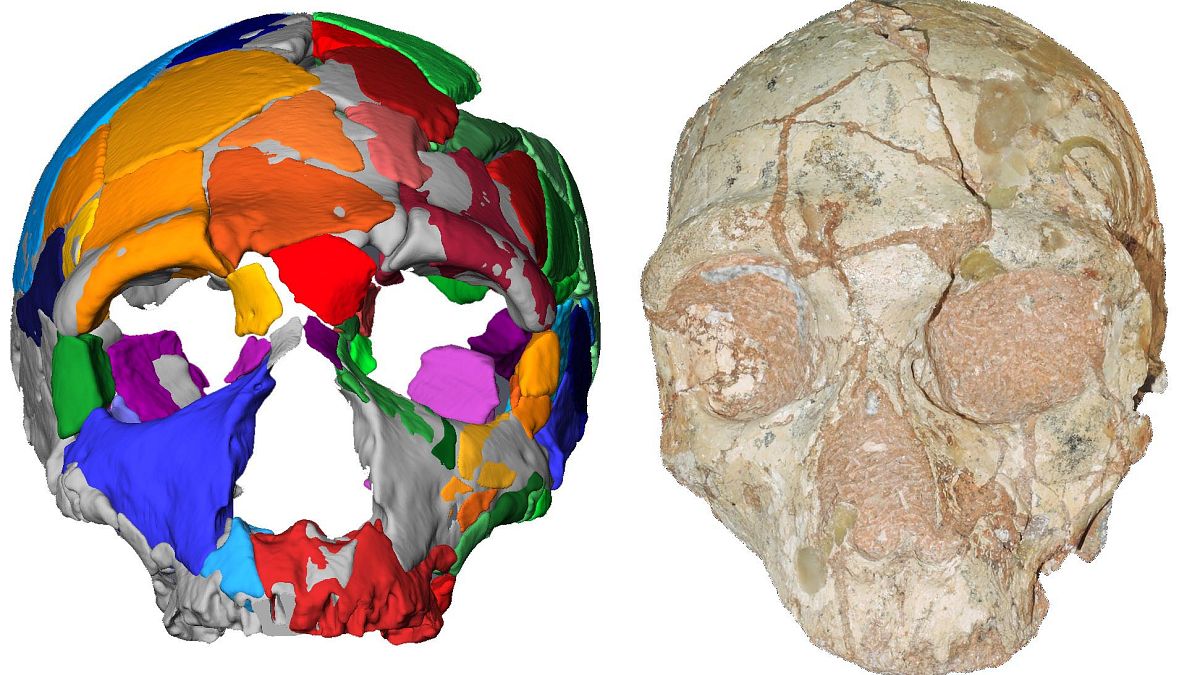Researchers have dated a skull found in the 1970s to be the oldest modern human outside of Africa.
A partial skull found in Greece is the earliest evidence of the presence of modern humans (homo sapiens) outside of Africa, a team of researchers announced.
The researchers dated the skull to about 210,000 years old, which, if true, would make the skull about 150,000 years older than the oldest fossil of homo sapiens found in Europe.
Researchers from Germany, Greece, Australia and the UK published the study in the journal Nature.
A second skull found in the same location was estimated to be at least 170,000 years old with Neanderthal features.
The two skulls (Apidima 1 and 2) were found together in the Apidima Cave in southern Greece in the late 1970s but attempts to age the skulls were inconclusive in part because the skulls were found wedged high in cave walls that at some point could have been infiltrated with water.
The bones were incomplete and may have been mixed by mudflow, the study said.
The research team ended up creating virtual reconstructions of parts of the skull and used a radiometric dating method — one that analyses the decay of uranium to determine the age.
"Apidima 2 is about 170,000 years old. We could tell that it was a Neanderthal," says Greek researcher Katerina Harvati, director of paleoanthropology at the Eberhard Karls University of Tübingen in Germany. "Surprisingly, Apidima 1 is even older, about 210,000 years old, but has no Neanderthal features."
The team hypothesises that a group of Neanderthals replaced the early population of modern humans.
"This discovery highlights the importance of Southeast Europe for human evolution," Dr Harvati said in a statement about the research.
Before this discovery, the oldest modern human fossils were an upper jaw and teeth found in an Israeli cave spreading from Africa to the Arabian Peninsula about 180,000 years ago.
The discovery reinforces the view that modern humans spread from Africa to Europe and Asia earlier than was previously believed.
